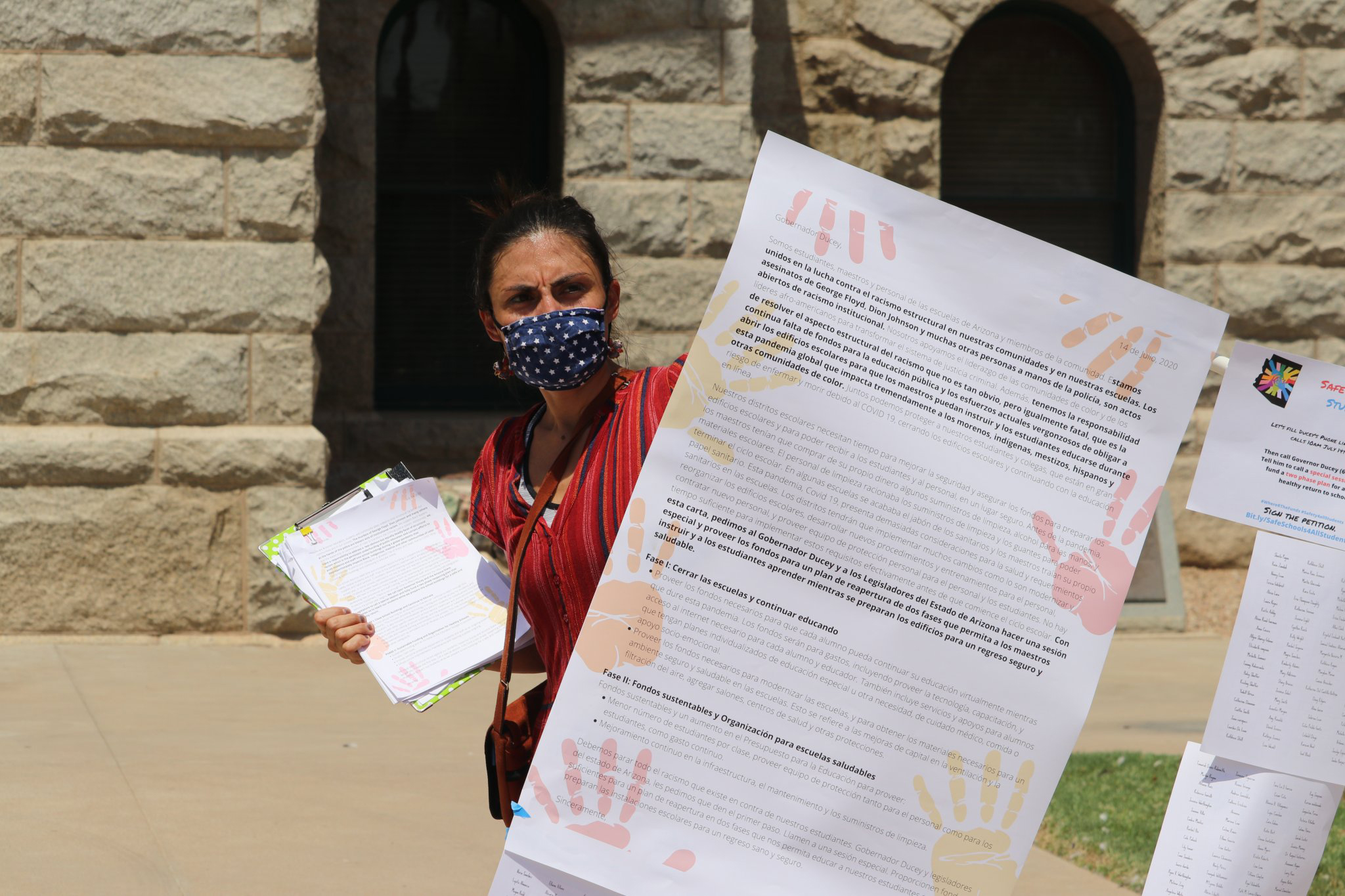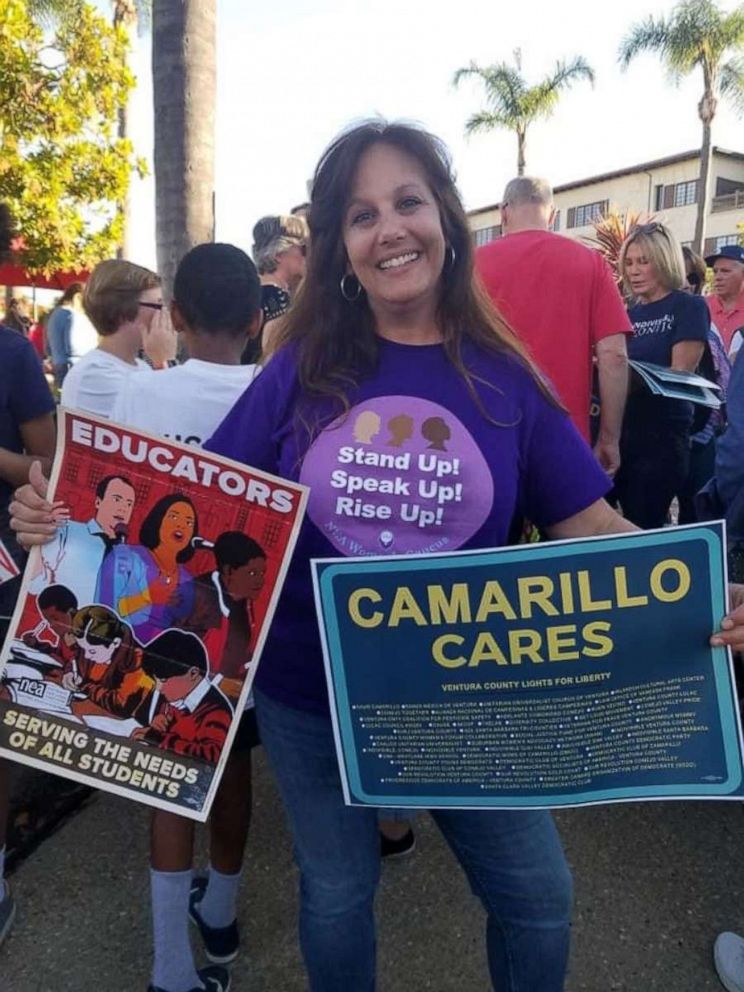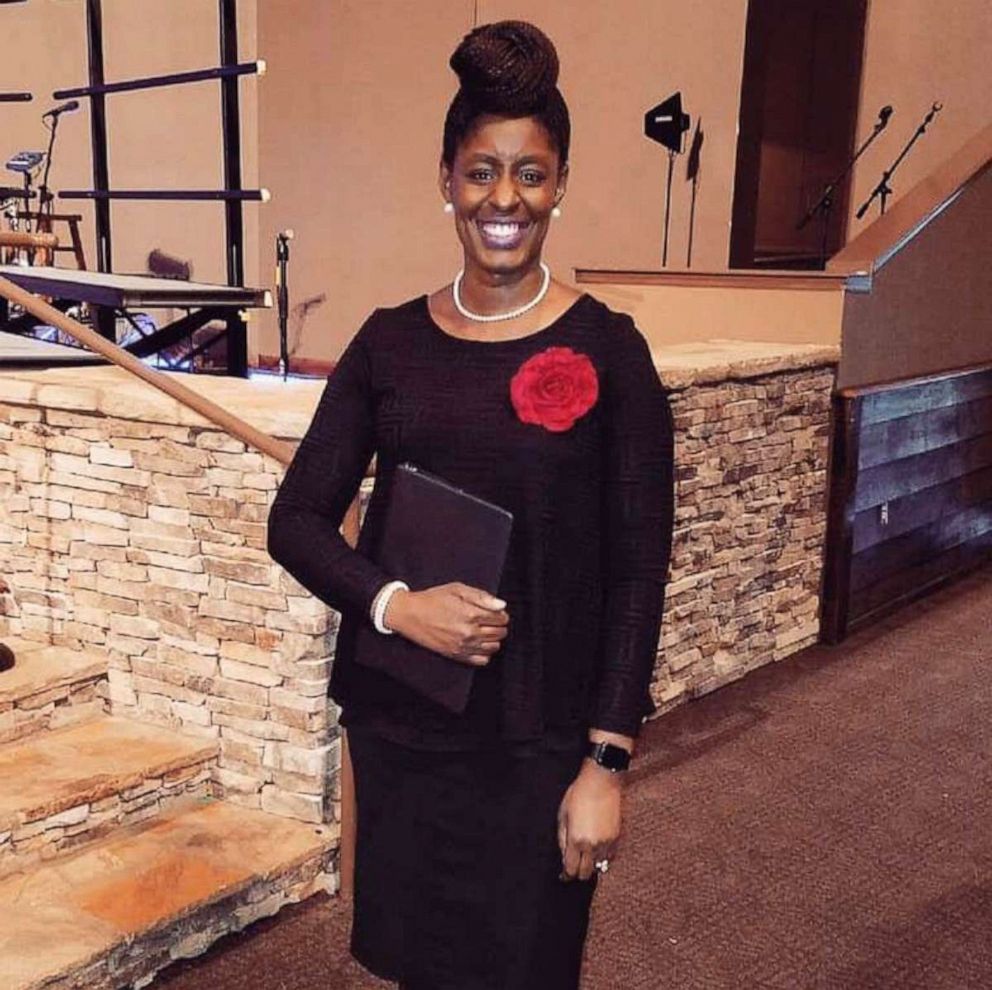3 teachers who are moms push back on reopening schools
The overwhelming majority of U.S. teachers are women.
As the coronavirus pandemic continues to rage across the U.S., the debate over how to safely reopen schools is intensifying.
Three teachers who are mothers spoke to ABC News, urgently pleading to halt plans of in-person school reopenings without better managing safety risks and providing more guidance on how to keep children and families safe.
From hard-hit Arizona -- now a global COVID-19 hot spot -- to California, which has seen a rise in new infections that forced a rollback of reopening plans, to Georgia, where a battle over mask-wearing continues, these three educators weigh in on the debate as a new Gallup poll shows slightly more than half the country's parents favor their child going back to school full time.
Lucero Beebe-Giudice
Lucero Beebe-Giudice, a middle school teacher in Phoenix, not only believes her state's reopening plan is reckless, considering Arizona is now a global COVID-19 hotspot, she's been rallying in the sweltering summer heat to make sure her voice is heard.
She joined a group of teachers, parents and activists at the Capitol on Tuesday to deliver to Gov. Doug Ducey a letter signed by over 1,900 people who oppose the state's reopening plan to resume in-person classes in less than a month.

"We have a historic legacy of systemic exclusion of communities of color from things like health, safety and security," she told ABC News. "And what's happening right now is by design. It's intentional. And we have to fight."
Beebe-Giudice, a 40-year-old mother of two who has been teaching for over seven years, previously worked in diversity recruiting and community relations. The letter she and hundreds of others delivered to state leadership stressed once again how reopening schools disproportionately harms students of color.
"I'm really angry right now," she said. "Governor Ducey just thinks that my Black, Indigenous, Mestizo and other students of color are disposable."
According to the Arizona Department of Education, most public school students aren't white: Among about 1.1 million, about 45% are Latino, 5% are Black, 4% are Native American, 3% are Asian American and 4% identify as multiracial.
Since a statewide reopening May 15, Arizona has seen an 850% increase of reported coronavirus cases. As of Thursday, the state's health department said nearly 90% of intensive care units were full.
"We live in a reality now where some schools run out of bathroom soap and toilet paper halfway through the year, and we're talking about a pandemic?" Beebe-Giudice said. "We need sustainable funding. We need to know that there are new protocols, maintenance and safety procedures."
Karen Sher
Karen Sher, a public school teacher in Oxnard, California, who has been teaching for more than 25 years, has joined the push to go virtual in the fall.
A mother of three who teaches language arts for middle schoolers, Sher reiterated that although many teachers would love to return to the classroom, it just isn't safe yet.
"As a teacher, a trustee and a parent, I want for all children to be successful and have the opportunity for a powerful future, but we can't do that if we're not alive," Sher told ABC News.

In California, the country's most populous state, Gov. Gavin Newsom recently rolled back several reopening plans as coronavirus surged, resulting in more hospitalizations and deaths.
Sher, a trustee for the Oxnard Union High School District and Board President, has condemned the federal government's threat to cut funding for schools that don't reopen in the fall.
Secretary of Education Betsy DeVos, who has no experience as an educator, has faced fierce backlash after demanding U.S. public schools reopen without providing any guidance on how to do so safely.
"To threaten to remove funding is cruel and wrong," Sher said. "The federal government should be giving schools more money to help provide measures that will protect everyone."
Sher, 50, calls teaching one of the joys of her life and has devoted years to advocating for teachers' rights. She also supports students, standing in solidarity with them on issues affecting the LGBTQ community and Black Lives Matter activists.
Public school teachers nationwide make about $60,000, and Sher, who also serves as a teacher leader for the California Teacher Association's Instructional Leadership Corps and the U.S. Library of Congress, also wants to know why if it's so vital to get students back in front of teachers, why aren't they more fairly compensated?
"If we're so vital to the success of our nation," Sher added, "why aren't we paid adequately?"
Roxanne Mungin
Roxanne Mungin, a 43-year-old mother and music educator in Georgia, has been teaching for over 20 years. Currently, she teaches middle schoolers.
Mungin said she's feeling a sense of relief after her county recently vowed to provide virtual learning for students, with only teachers and staff set to return to classrooms in the fall.

Mungin's child is 6, so although she's been given some level of temporary comfort considering the circumstances, the decision allowing her to teach virtually still presents its own challenges.
"Now the problem is teachers with kids. Because we have to teach from the building, we can't be with our kids during the day," Mungin told ABC News.
She said she's standing in solidarity with fellow teachers nationwide -- whom she calls "front-line workers" -- in rallying for stricter safety guidelines, including at several schools across her home state of Georgia where there's little if any guidance.
Mungin said any educators uncomfortable with the lack of safety guidance -- either from their districts or from the federal government -- need to remember that they "have rights."
"Make your voice heard," she said. "We have to say something because we're already the most underrated profession. ... COVID has really brought out another perspective of how parents, administrators and local school officials feel about teachers."




